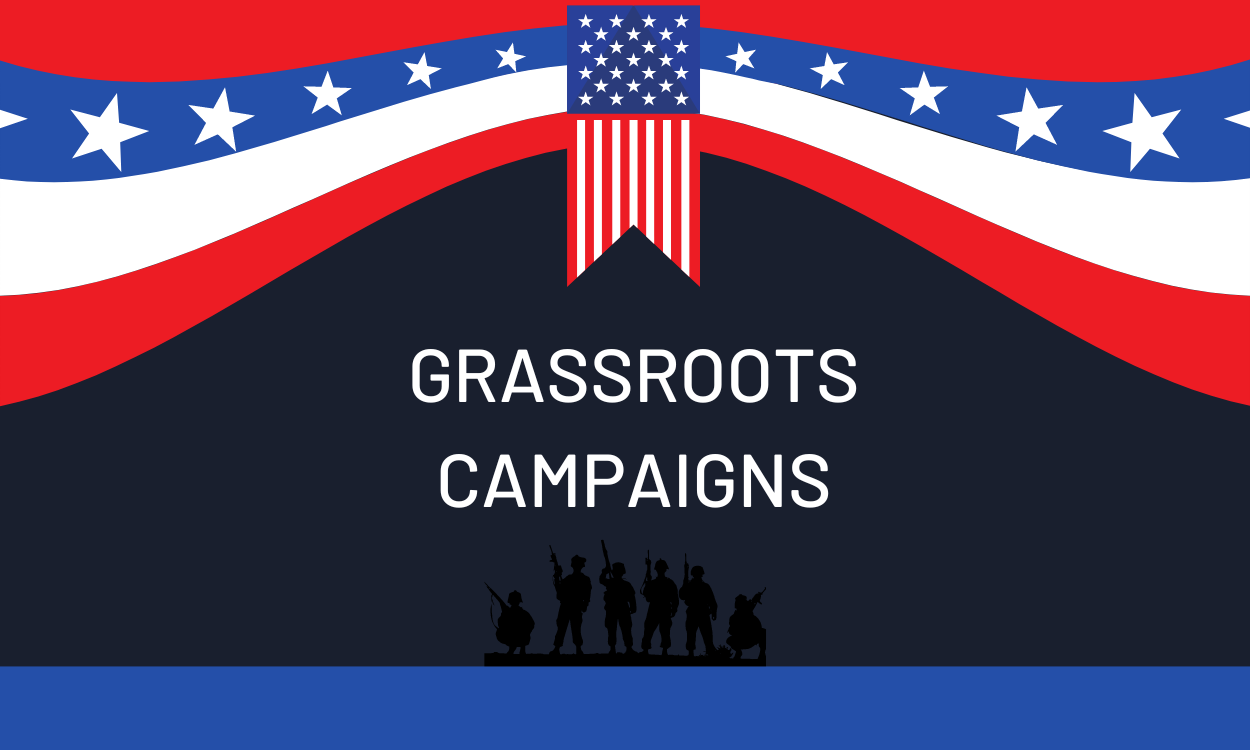In an era where big money exerts significant influence in U.S. politics, grassroots campaigns have emerged as a powerful force in countering the sway of wealthy donors and special interest groups. This blog post highlights the importance of grassroots movements in shaping the political landscape and promoting a more inclusive and participatory democracy.
The Rise of Grassroots Campaigns
Understanding grassroots campaigns Grassroots campaigns are community-driven movements that mobilize individuals at the local level to advocate for specific causes, candidates, or policy changes. These campaigns typically rely on volunteer efforts, small donations, and grassroots organizing techniques to build support and create meaningful change. Grassroots movements empower ordinary citizens to actively engage in the political process and challenge the influence of big money.
The impact of grassroots campaigns in recent history In recent years, grassroots campaigns have demonstrated their power to shape political outcomes and ignite social change. The Bernie Sanders presidential campaign in 2016 and 2020 showcased the strength of grassroots organizing, leveraging small-dollar donations and a robust volunteer network to challenge established political norms. Additionally, movements like Black Lives Matter, the Women’s March, and the Sunrise Movement have mobilized millions of individuals across the country, driving conversations and pushing for policy reforms.
Grassroots Campaign Strategies for Success
Building community connections and organizing networks Grassroots campaigns begin by connecting with individuals at the local level, building relationships, and creating networks of like-minded individuals. This involves community outreach, attending events, hosting meetings, and utilizing social media platforms to engage potential supporters. Grassroots organizers work to build trust, create meaningful connections, and cultivate a sense of shared purpose among participants.
Empowering volunteers and promoting grassroots activism Volunteers are the lifeblood of grassroots campaigns. Empowering and engaging volunteers is crucial for success. Campaigns provide training, resources, and clear roles for volunteers to contribute effectively. Grassroots activists can engage in various activities, including door-to-door canvassing, phone banking, voter registration drives, and organizing local events. By involving volunteers in meaningful ways, campaigns tap into the passion and energy of the community, amplifying their impact.
Utilizing digital tools and social media platforms Digital tools and social media platforms have revolutionized grassroots organizing, providing accessible and cost-effective means to reach a broader audience. Campaigns utilize websites, email newsletters, and social media platforms to share information, rally support, and mobilize action. They leverage online fundraising platforms to collect small-dollar donations from a wide range of individuals, reducing reliance on big money donors.
Examples of Successful Citizen-Led Initiatives
The Fight for Marriage Equality The movement for marriage equality in the United States serves as a powerful example of a grassroots campaign leading to significant policy change. Activists, advocates, and everyday citizens organized rallies, held community forums, and engaged in public education efforts to change hearts and minds. Grassroots campaigns played a crucial role in building momentum and ultimately pushing for landmark Supreme Court rulings that legalized same-sex marriage nationwide.
Gun Control Advocacy after Parkland In the aftermath of the tragic shooting at Marjory Stoneman Douglas High School in Parkland, Florida, student activists mobilized a grassroots campaign to advocate for stricter gun control laws. The students organized rallies, walkouts, and media campaigns to demand action from lawmakers and raise public awareness. Their grassroots efforts brought renewed attention to the issue of gun violence and sparked a national conversation, leading to policy changes in several states.
Environmental Activism and the Divestment Movement Grassroots campaigns have also been instrumental in raising awareness about environmental issues and promoting divestment from fossil fuels. Through grassroots organizing, climate activists have engaged with universities, religious institutions, and other entities to divest from fossil fuel investments. These efforts have not only raised public awareness but also pressured institutions to take concrete action to address climate change.
Conclusion
Grassroots campaigns have the power to challenge the influence of big money in U.S. politics and promote a more inclusive and participatory democracy. By building community connections, empowering volunteers, utilizing digital tools, and learning from successful initiatives, grassroots movements can amplify the voices of everyday citizens and drive meaningful change. The impact of grassroots campaigns serves as a reminder that political power ultimately resides with the people, and collective action can reshape the political landscape.


